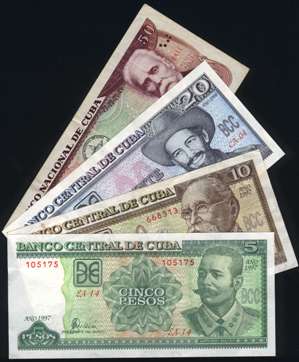“With Money and Without Money.” “Why Some and Not Others?” “Take What You Want; Pay What You Will.” These are titles of some articles that appeared in our print media, and all of them – all – deal with the oft recurring and very familiar topic of ACCOUNTS RECEIVABLE AND PAYABLE. They would seem to be fiction, but a fiction so real that it is impossible to avoid. It has become a part of our culture.
Will our economy perhaps be strengthened in reality or in virtual reality? Will we be permitted to acquire a product or article, or to receive a service in a state-run store without “paying” for it? When we purchase our daily bread, which we get at a price of $0.05 Cuban pesos, would the sales clerk be so humanitarian and sympathetic that he would accept our saying, “We will pay for it tomorrow, or whenever we can?”
It has become common practice. The accepted rhetoric is that we do not have the ability to pay, but ample ability to receive. In state owned enterprises paper money (hard, cold cash) never changes hands. Half cash (or more aptly, vouchers) are used for collection and payment instead. The preferred method of payment in our system is the check – an instrument that often and not surprisingly is issued without the resources (funds) to back it up.
You would have to hold who knows how many events, meetings, seminars and congresses to solve the issue of collection and payment. Delinquency and default have become rooted in our system like a chronic plague that we don’t know how to eradicate or extirpate. Our way of seeing and thinking is similar to HIV; it is killing the defense mechanism of our economic system, even though the opposite is claimed. Will we again take up the old slogan, Today I don’t sell on credit; tomorrow I will?
“To be or not to be” It is not enough to feel or to believe oneself a businessman in the fullest and deepest sense of the word (to be autonomous and independent). It would be impossible, given the complacency of some and the detrimental impact it would have on others, to move forward under the weight of restrictions – instructions, directives, etc. – “issued from above.” These restrictions impede the normal and appropriate interactions between buisnesspeople “below” from taking place as they should. The director of the milk-producing company should be able to suspend deliveries to the Office of Public Health or to the Office of Education if they do not pay what they owe. All or most such actions are, in theory at least, legal.
At what point do we stop blaming, rightly or wrongly, “circumstances,” or the impenetrable blockade in order to avoid dealing with the inability to resolve the problems weighing us down like a knapsack on our back? If the blockade were to disappear tomorrow, the consequences from that would surely be blamed instead. It would not matter that it no longer existed; its spirit would live on. As the old Cuban saying goes, nothing bad lasts a hundred years, nor would anyone allow it to. But the hard, cold reality is that we are only at the mid-point of those hundred years.
Rest assured that the causes and conditions preventing collections and payments from taking place, and how to deal with the problem through legislation, are being studied with seriousness, depth and restraint. And you can also be quite certain that this will remain an unresolved issue in the coming year. Of this I am sure.
June 12 2012


